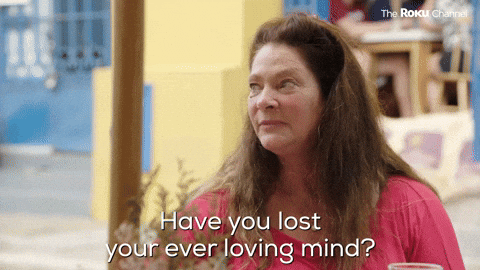- Resilient Reiner Newsletter
- Posts
- [Pro Tip] How NOT to Lose Your Cool {PLUS FREE BONUS!}
[Pro Tip] How NOT to Lose Your Cool {PLUS FREE BONUS!}


I had a challenging moment with my horse this last week. Remember how I was teaching him to back out of the trailer? Well, that’s a training process that requires me to stay calm and centered and let him figure out what I’m asking him to do.
I can’t back out for him. I can just teach him to back and walk forward and to trust me and then lay out the pieces like a puzzle for him to solve. And it’s not always easy to let your horse learn!
It can be easy, though, to assume ill intent when your horse doesn't do what you want them to do. It can be easy to let yourself go straight to frustration, anger, or shame, and wonder why your horse won’t back out of the trailer, or load quietly, or turn to the right, or… whatever it is that you are facing.
Those are the days when you have to gather all your mental knowledge and experience to stay in control of yourself despite the triggering moment.
What can you do to stay calm when your horse is not behaving? Not doing as you ask?
(Pssst!! Don’t miss out on the freebie at the end to help you out in these situations!)
Take a deep breath and think of an iceberg.
You know, those giant things the Titanic crashed into?
And what’s so special about an iceberg, you ask? Well, what’s visible is only the “tip of the iceberg,” as they say. Most of the iceberg is under the waterline; invisible to us above.
And your horse's challenging behaviors are just the tip of the iceberg. There is a lot more going on “below the surface.”

This change in perspective helps you detach from the frustration you may feel in the moment and consider the deeper layers of your horse’s feelings and actions.
So, in the context of trailer loading, instead of thinking, “My horse is so stupid!” try shifting your perspective to: “My horse doesn’t understand what I’m asking.” Do they truly understand leading forward, and backing up? Have they ever had to step up and off anything? Sometimes we unintentionally set our horses up to fail by giving them a “test” without ever having covered the “material.”
Or rather than thinking, “My horse just won’t load into the trailer” you can think, “My horse is worried about being alone.” or, “My horse is worried we are going back to the vet to get poked with needles again.”
We can pause, and consider our horse’s perspective for a moment. What are they thinking and feeling? Have we set them up for success? Perhaps we skipped some steps, or there is something we can do to make them feel more at ease. It’s not that we’ll excuse any bad behavior or never place expectations on them; it’s that we’ll be more successful in our training and riding by considering their perspective so we can address everything that our training truly needs to address.
Capiche?
As riders, we have so much that is visible: our posture, our horse’s frame, rein handling, is the mouth gaping, is the tail swishing? How was the execution of any maneuver? Pretty much any visible interaction with the horse.
And, we have so much that’s hidden below the surface! Things like the rider's mental state, the emotions, and the deep-seated instincts that govern reactions in stressful or triggering situations. Oh, and this all applies to the horse as well! They have their own emotions and reactions, and a mental state, too. Just like the vast majority of an iceberg that remains unseen underwater, these aspects are not immediately visible to onlookers but are crucial to the horse and rider’s performance.
The iceberg analogy underscores the importance of mental and emotional preparation in addition to physical training for Western riders. By acknowledging and working on the unseen elements of riding, you can enhance your control and performance, especially during triggering or stressful moments.
So whenever your horse is frustrating you, think of an iceberg. Remember, what you observe may not be the whole scenario. Mentally or physically. Take a breath, pause, understand their viewpoint, and adjust your training methods accordingly. By creating a positive and supportive training environment, we not only benefit our horses but also enrich our own riding experience. This leads to a stronger, more fulfilling partnership between horse and rider.
As a rider, the better you can understand and manage the 'below the surface' aspects, you can improve your overall performance and ability to stay in control, even in the most challenging situations.
Write back and tell me about a recent time when you ran into an “iceberg” in your training!
Happy Trails,
Nicole Burnett
Don’t forget to grab your Free Newsletter Bonus below! Exclusively for Resilient Reiner Newsletter subscribers to download for the next 7 days!

Reply